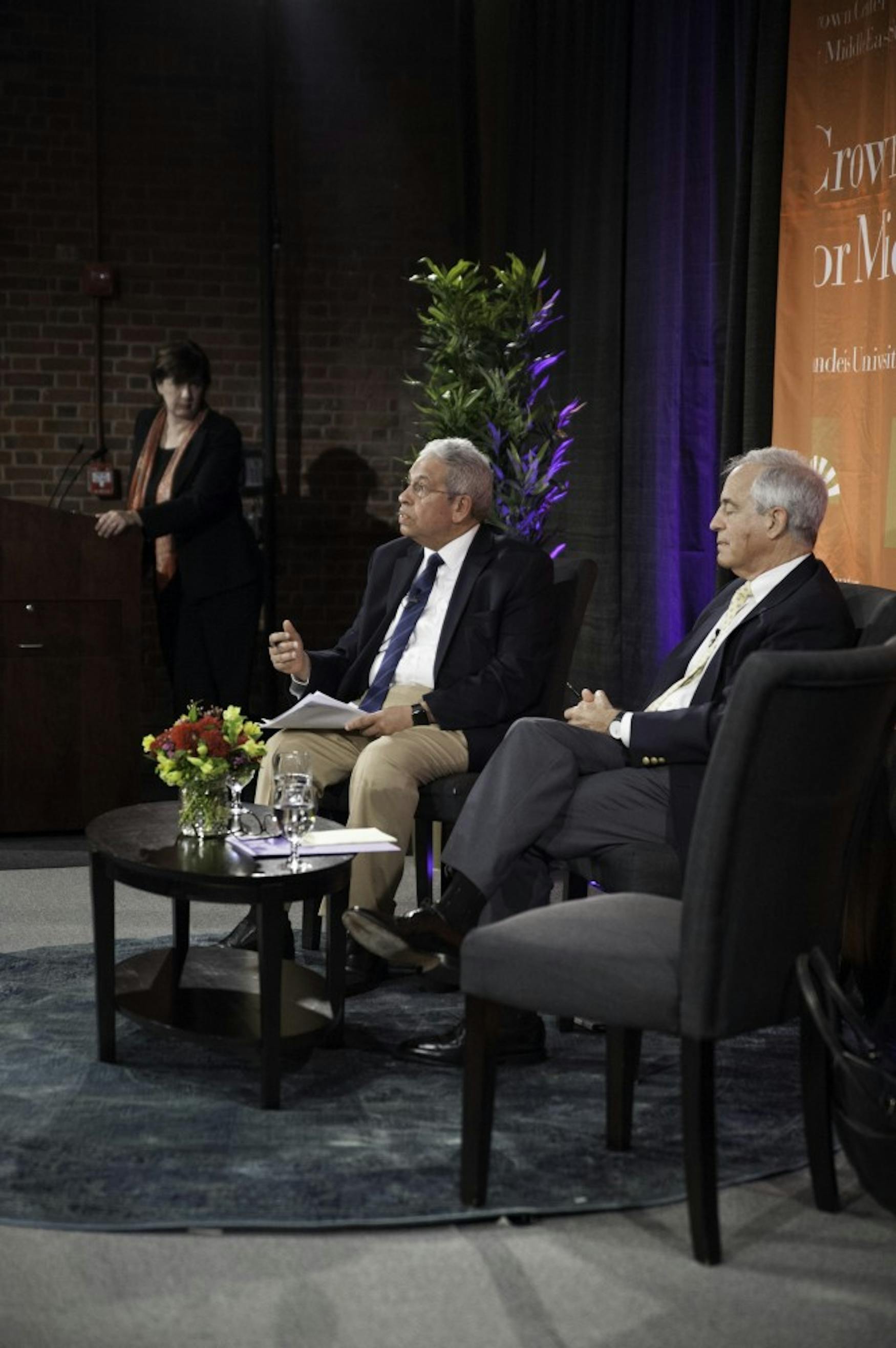Conference discusses the Arab-Israeli conflict
With the effects of Zionism an ongoing discussion topic in Middle Eastern Politics, distinguished scholar Abdel Monem Said Aly and the University’s president emeritus, Jehuda Reinharz, came together on Sunday at the Keynote Symposium of “Looking Back, Looking Forward: 100 years of the Arab-Israeli conflict” to share their perspective on the effects of the Balfour Declaration of 1917.
Co-sponsored by the University of Arizona and Tufts University, the panel focused on the effect of the first hundred years of the Zionist enterprise and the evolution of the Arab world’s response over the past century.
A prominent historian of the Zionist Movement and Richard Koret professor of Jewish History, Reinharz offered his perspective on the foundations of Zionism, a term coined by Nathan Birnbaum in 1890 expressing the natural movement for the return of Jewish people to their homeland. Reinharz focused on the contributions that Chaim Weizmann made for the establishment for the State of Israel.
Weizmann, originally a chemist from the University of Manchester, was appointed head of the British Zionist Organization in 1917 and sought to use his position to support Jewish rights in Palestine.
Reinharz explained that, while Weizmann’s contributions as the head of the Zionist Commision for Palestine led to the implementation of the Balfour Declaration — a written agreement stating that England would support Israel in the formation of a state within Palestine — it can be seen as “the original sin that engendered the Jewish-Arab Conflict.”
Reinharz continued to explain that Weizmann’s instincts, upbringing and “sharp awareness of the fine points of class distinction” resulted in a mentality of “the Ultimate Britain,” a term he used to exemplify the idea that Weizmann was the individual best suited for making negotiations with British rulers.
Weizmann understood both the “importance of the British war effort” and that the initial “neutralist polity” of the World Zionist Organization was a dangerous one, he said.
Furthermore, Reinharz asserted that Jewish immigration to Palestine would “not have been possible” without British rule, and therefore, it was the Balfour Declaration that allowed Yishuv, an early Jewish community in Palestine, to grow. However, due to Weizmann’s work, Zionism was “no longer a trans-national movement” but rather “a new reality,” Reinharz said.
Offering a separate perspective which focused on 1949 to the present, Said Aly, the former director of the Al-Ahram Center for Political and Strategic Studies in Cairo and lead author of “Arabs and Israelis: Conflict and Peacemaking in the Middle East,” continued Reinharz’s exposition by offering his narrative of the conflict.
He explained that the original sin “was not only for us but for everyone,” as he recounted that the British at the time “made many promises to everyone.”
He referenced the Husayn-McMahon correspondence, a series of letters exchanged between Husayn ibn Ali, the Emeritus of Mecca, and Sir Henry McMahon, the British High Commissioner in Egypt.
This correspondence discussed the formation of a complete Arab kingdom in the fertile crescent as contradictory to the Balfour Declaration. With this in mind, Said Aly explained that the main issue lies in the British division of the fertile crescent through “conflicting” British promises.
“The conflict and creation of the establishment of the state of Israel,” Said Aly explained, “have been instrumental in affecting the political evolution of countries surrounding Israel.” Therefore, he asserted, the reality is that both Palestinians and Israelis “though divided, live within ‘one realm,’” and are both affected by the other’s decisions.
Said Aly concluded that “one realm” and a partition state “might open the gate for a new approach to conflict resolution, and new prospects for the Middle East.”



Please note All comments are eligible for publication in The Justice.